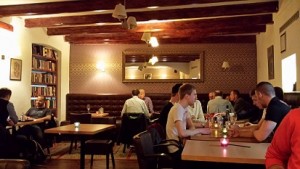History
Exiles of Love: Lída Merlínová and the World of the Czech Lesbian
October 3, 2014
by Carla Barrett
As part of the Czech/Slovak Literature Seminar Series at the UCL School of Slavonic and East European Studies, Professor Mark Cornwall (University of Southampton) will be giving a talk entitled “Exiles of Love (Vyhnanci lásky): Lída Merlínová and the World of the Czech Lesbian”.
Date: Thursday 11th December
Time: 6pm
Venue: UCL School of Slavonic and East European Studies, 16 Taviton Street, London, WC1H 0BW (room TBC).
All are welcome. Texts in the original language will be made available prior to the meeting; please contact Peter Zusi at p.zusi@ucl.ac.uk. Unless indicated otherwise texts do not exist in English translation.
Thomas Glave: An Evening of Readings and Conversation
September 27, 2014
by Carla Barrett
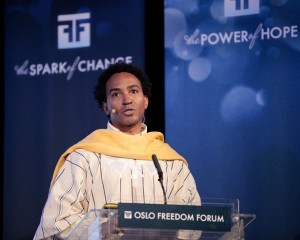
Photo credit: Oslo Freedom Forum
Wednesday 15th October 2014 at 6pm
Lecture Theatre B, James Parkes Building, Avenue Campus, University of Southampton
Thomas Glave is a writer of essays, short-fiction and poetry whose books include Whose Song? And Other Stories, Words to Our Now: Imagination and Dissent, The Torturer’s Wife and Among the Bloodpeople: Politics and Flesh. He is also the editor of the ground-breaking anthology Our Caribbean: A Gathering of Lesbian and Gay Writing from the Antilles.
His short story – The Final Inning – received an O Henry Prize in 1997, while Words to Our Now and Our Caribbean were both recognized with Lambda Literary Awards celebrating excellence in LGBT literature. Glave’s work has appeared in The New York Times, The Kenyon Review, Callaloo, and in several anthologies. His interests include contemporary Caribbean “Queer” writing, Latin American and post-colonial literature, Black British writers, literatures of testimony and human rights and creative non-fiction. He has been an important voice for LGBT rights in the contemporary Caribbean.
Glave is a professor of English and creative writing at the State University of New York in Binghamton and 2014 Leverhulme Visiting Professor in Hispanic Studies at the University of Warwick. He will be in conversation with Professor Stephen Morton (English) and Dr. Christer Petley (History).
This event is organized by the Centre for Imperial and Post-Colonial Studies at the University of Southampton.
Call for Papers on Soviet and Post-Soviet Sexualities (UCL)
July 18, 2014
by Carla Barrett
Call for papers for a one-day workshop on
Soviet and Post-Soviet Sexualities
UCL School of Slavonic and East European Studies
Friday, 20 February 2015
The aim of this one-day workshop is to engage critically with the under-researched topic of Soviet and post-Soviet sexualities. Prompted by the introduction of laws restricting the rights of LGBTQ citizens and the increase in homophobic violence in Russia and other post-Soviet states, there is a pressing need to understand attitudes towards non-normative sexualities, the lived experience of sexual minorities and the ways in which LGBTQ individuals and groups seek/have sought to negotiate/resist heteronormative structures and homophobia in the specific socio-political, cultural and historic contexts of the Soviet and post-Soviet space. The workshop will comprise papers from and debate among both established academics and research students from a range of disciplines and working on various aspects of the study of non-normative sexualities in the Soviet and post-Soviet space. The aim is to publish a special issue and/or an edited volume of the papers presented.
Confirmed speakers:
- Philip Bullock, University of Oxford
- Dan Healey, University of Oxford
- Alexander Kondakov, European University of St Petersburg
- Richard Mole, University College London
- Francesca Stella, University of Glasgow
If you would like to participate, please send an abstract of 200-300 words to Richard Mole at UCL (r.mole@ucl.ac.uk) by 1 September 2014. Papers from researchers based in the former Soviet Union will be particularly welcome. Funds are available to make a contribution (up to 100%) towards presenters’ travel and accommodation costs.
Letter from a LGBT Czech Republic – Professor Mark Cornwall
April 19, 2014
by Carla Barrett
Professor Mark Cornwall explores LGBT life in the Czech Republic.
I lived in Prague for six months in 1989 in the dying days of the hardline Czech Communist regime (when Vietnam and Romania were the regime’s only real allies!). One had to search very hard for any LGBT venues or open gay culture of any kind. This, despite the fact that male and female homosexuality had been legalized in Czechoslovakia in 1961. Perhaps the most famous gay club was the T-Club near Wenceslas square. It was hard to find and pretty unwelcoming. You went down some steep steps and up against an iron gate which had to be unlocked and then locked again by a grumpy doorman. Inside was a small dance floor and bar where a preferred drink seemed to be red wine and coke; western music blared out. It was always said that the club was watched by the secret police, and certainly it was a state-run enterprise. If you want to get a feel of the place now, there is quite an accurate description in the new novel, Necessary Errors, by the American writer Caleb Crain (although readers may wince a bit at the naïve American abroad in Europe). Elsewhere in Communist Prague, one needed a special gaydar to find any LGBT culture: it only took off publicly after the Velvet Revolution.
And now? Well, a quarter of century later, Prague is flourishing and feeling quite at ease with its gay culture. There are a whole range of venues including, apart from the standard pubs and clubs, a very relaxing ‘cultural centre’ called the Q Café near the National Theatre. There you can even find a gay library. For the history of Czech homosexuality is only just being written: three books came out in the last two years, exploring LGBT culture, literature and history. Perhaps there is too much focus on men, too little on women, but things are certainly changing and veering away from gender stereotypes. It is a far cry from the rent boys and secret bars of 1989. Now too, it is possible to go on a tour of gay historic Prague with a leading queer historian, so a ‘gay historic space’ is being reclaimed and made part of a broader public memory. And if Czech gays and lesbians do not have gay marriage, they do have civil partnerships and gay adoption rights. For a culture which has often sometimes seemed a bit too hetero (see the novels of Milan Kundera), one can say that Queer Prague is slowly emerging. Make sure you visit it.
Southampton Stonewall Lecture 2014 (Podcast Available)
February 20, 2014
by Carla Barrett
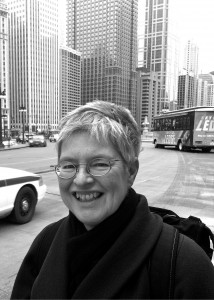 As part of LGBT History Month, last week the University of Southampton hosted the 3rd annual Southampton Stonewall Lecture. Each year this lecture is devoted to LGBT or queer history. This year, Professor Laura Doan gave a fascinating talk entitled ‘On the Entanglements of Queer Memory and History – the Case of Alan Turing’. Her talk centred around collective memory (or the cultural phenomenon of what groups remember); and she used the case of Alan Turing as a means of considering the tensions between collective memory and academic history.
As part of LGBT History Month, last week the University of Southampton hosted the 3rd annual Southampton Stonewall Lecture. Each year this lecture is devoted to LGBT or queer history. This year, Professor Laura Doan gave a fascinating talk entitled ‘On the Entanglements of Queer Memory and History – the Case of Alan Turing’. Her talk centred around collective memory (or the cultural phenomenon of what groups remember); and she used the case of Alan Turing as a means of considering the tensions between collective memory and academic history.
I write this post as a geographer, not a historian. My own academic work considers how contemporary uses of space, and ways of living in the home, might be queer. In other words, I am interested in contemporary queer spatialities. What I found most interesting about Doan’s talk was the attention she drew to queer temporalities. This is a relatively new field in queer studies, interested in putting queer people back into history. One of the key questions that Doan posed in her talk was how do you (or can you) historicise contemporary identities? She noted that today we understand sexuality in terms of possessing an identity, whereas this was not necessarily the case at the time that Alan Turing was living. As such, Doan pointed out that although describing Alan Turing as ‘gay’ might help us to understand the past, it may also fail to really capture how he would have experienced the world.
To download a podcast of Professor Doan’s lecture, please click here.
LGBT History Month events at the University of Southampton
February 6, 2014
by Carla Barrett

February is LGBT History Month, and the theme for 2014 is music. To celebrate, there are a number of events planned at the University of Southampton, including the annual Stonewall Lecture and the ‘“Coming Out” to Gay and Lesbian History’ Study Day. Find out more about the range of events planned below:
Saturday 8th February
‘“Coming Out” to Gay and Lesbian History’ Study Day
10am-4pm, building 85, Highfield campus
A study day run by the university to explore the field of lesbian and gay history. To find out more, click here.
Wednesday 12th February
Amnesty International Society make origami roses
4pm, building 58 room 1039, Highfield campus
Making origami roses with ‘Love is a human right’ written on them to be handed out on Valentine’s Day around the concourse.
Thursday 13th February
Southampton Stonewall Lecture 2014
6pm, Avenue Campus
‘On the Entanglements of Queer Memory and History – The Case of Alan Turing’ by Professor Laura Doan. An annual lecture dedicated to LGBT history. To find out more, click here.
Friday 14th February
Amnesty International Stall
2.30pm-5.30pm, the Concourse, Highfield campus
Origami roses and cake sale to raise awareness of LGBT issues around the world.
Wednesday 26th February
Open Mic Night for LGBT History Month
7pm, The Bridge Bar, Highfield Campus
An evening of music to celebrate the LGBT community. Organised jointly by SUSU LGBT, Amnesty International Society, and the E&D forum. To find out more, click here.
Queen and Country: Same Sex Desire in the British Armed Forces, 1939-45
January 30, 2014
by Carla Barrett
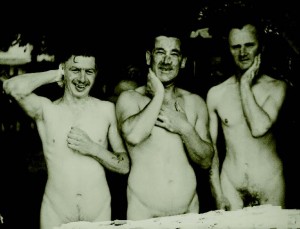 As part of LGBT History Month, the University of Winchester is hosting a guest seminar with Dr Emma Vickers (Liverpool John Moores University) entitled ‘Queen and Country: Same Sex Desire in the British Armed Forces, 1939-45’.
As part of LGBT History Month, the University of Winchester is hosting a guest seminar with Dr Emma Vickers (Liverpool John Moores University) entitled ‘Queen and Country: Same Sex Desire in the British Armed Forces, 1939-45’.
The event is free and open to all, and will be followed by a small wine reception.
It will be held in room 16, Medecroft building, University of Winchester. Unfortunately, due to the speaker’s illness, this seminar is being rescheduled. To keep up to date, please see the event’s page on Facebook:
LGBTQ Lives Research – New PhD Studentship opportunities, University of Brighton
January 28, 2014
by Laurence Georgin
New PhD Studentship opportunities: The University of Brighton is currently inviting prospective doctoral students who are interested in applying for a studentship in the Arts and Humanities with a focus on LGBTQ sexualities and gender research to contact them about the TECHNE partnership.
The LGBTQ Lives Research Hub offers an opportunity to work with scholars specialising in gender and sexualities research across a broad range of subject areas, including:
- Cultural Geography
- Media Studies
- Cultural Studies and Popular Culture
- Digital economy areas related to gender and sexuality
- Drama and sexuality
- Early modern sexuality and gender
- Literature and Film
Please send a short summary of your proposed project (500 words) and details of your qualifications to LGBTQ@brighton.ac.uk as soon as possible. The Research Hub will contact applicants to help liaise with potential supervisors and guide you in the submission of a formal application. The deadline for formal applications is the 19th February 2014. For further information download the flyer or go to http://arts.brighton.ac.uk/projects/lgbt/news/new-phd-studentship-opportunities
“Coming Out” to Gay and Lesbian History’ Study Day, Saturday 8 February 2014, 10am-4pm, bldg 85, Highfield campus
January 21, 2014
by Laurence Georgin
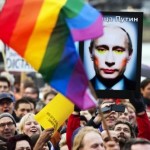 This annual LGBT History study day is this year held as a Lifelong-Learning event. We welcome anyone interested in LGBT History to come and explore an exciting and varied programme.
This annual LGBT History study day is this year held as a Lifelong-Learning event. We welcome anyone interested in LGBT History to come and explore an exciting and varied programme.
We will be holding this one-day cultural event on Saturday 08 February consisting of a series of short talks led by experts from within the University. This thought provoking and inspiring conference will provide you with the opportunity to learn and engage in discussion about gay and lesbian history from academics of international distinction.
This unusual study day is an opportunity for you to explore and discuss the new field of lesbian and gay history. Our aim is to look at personal case studies from the past thousand years, from Britain and Europe, and particularly to use a rich variety of historical sources to illustrate the challenges of finding and understanding homosexuals in the past.
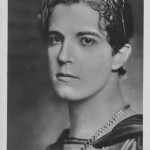 In a range of talks, by experts from the History department and outside speakers, we will consider the changing attitudes to same-sex activity – whether tolerance or discrimination – but also try to look at the subject from the perspective of the lesbian or gay man. Topics range from medieval Britain through to modern central Europe, from religious attitudes and lesbian sex, through to male homosexuality under totalitarian regimes. By the end of the day you will have learnt about the richness of this ‘hidden history’ and the problems the historian faces when researching it.
In a range of talks, by experts from the History department and outside speakers, we will consider the changing attitudes to same-sex activity – whether tolerance or discrimination – but also try to look at the subject from the perspective of the lesbian or gay man. Topics range from medieval Britain through to modern central Europe, from religious attitudes and lesbian sex, through to male homosexuality under totalitarian regimes. By the end of the day you will have learnt about the richness of this ‘hidden history’ and the problems the historian faces when researching it.
LGBT History Study Day 2014 Programme
Charges
£31 full rate
£21 loyalty rate (Harbour Lights Members, Friends of Parkes, English Teachers Network, university staff and alumni)
£11 discount rate (students/sixth form & college students and those in receipt of income-based Job Seeker’s Allowance, Income Support, Working Tax Credit, Council Tax or Housing Benefit)
All prices include lunch and refreshments
Payment
To book your place, please log into our new secure Online Store to complete the application form and make payment.
Contact for more information
Name: Lifelong Learning Team
E-mail: lifelonglearning@southampton.ac.uk
Find out about other Lifelong Learning events at www.southampton.ac.uk/lifelonglearning
Southampton Stonewall Lecture 2014, 13 February 6pm: On the Entanglements of Queer Memory and History – The Case of Alan Turing
January 14, 2014
by Laurence Georgin
Part of Lesbian, Gay, Bisexual and Transgender History Month
The Southampton Stonewall Lecture speaker in 2014 is Professor Laura Doan from the University of Manchester. 
The lecture will take place at the Avenue campus on 13 February at 6pm and will be chaired by Professor Mark Cornwall.
For LGBT and queer-identified people aware of Alan Turing’s sexuality, his arrest in 1952 on charges of “gross indecency” and his barbaric punishment (chemical castration in lieu of prison), the spaces of commemoration take on added resonance, an encounter with the past which historians associate with memory. Not individual memory, but collective memory, the social phenomenon or cultural dimension of what groups remember. In this lecture Professor Laura Doan will use Turing, recently pardoned by the British government, as a case study to prise memory, time and history apart, while also leaving them intertwined and messy.
The Southampton Stonewall Lecture is an annual lecture at the University of Southampton devoted to the history of homosexuality or LGBT history. The purpose of the lecture is to educate the present about the past; to showcase thinking and research about LGBT history; and to enhance the University of Southampton’s remit of promoting sexual diversity in the regional community.
The inaugural Stonewall Lecture was given in March 2012 by Angela Mason CBE, former executive director of the Stonewall charity. Her lecture, drawing a large audience, was entitled: ‘Twenty-Five Years On: The Fight for LGBT Rights in the UK’. Last years lecture ‘Gay Culture in Postwar New York: Community Creation and Conflict‘ was given by Professor George Chauncey (Yale). You will find video and interview re the lectures by following the links above.
To find out more about Professor Doan please visit her online profile.
There will be a charity collection for Stonewall at the end of the lecture.
Tea and coffee will be served in the North Corridor at 5:30pm and a drinks reception will be held following the lecture.
Registration: RSVP before 6 February
If you wish to attend this event please email Tracy Storey at tps@southampton.ac.uk to reserve a place.

